2020 In America Findings: Staying Strong With Sickle Cell
Every year, an estimated 300,000 babies are born with sickle cell disease globally. Approximately 100,000 people are thought to live with sickle cell disease in the US. Over the past few decades, efforts to advance diagnosis and treatment have increased dramatically, improving the quality of life for those living with the disease.
Despite advances in medicine, sickle cell warriors still experience debilitating complications and stigma in healthcare settings. Yet sickle cell warriors continue to take charge of their own health by knowing their bodies.
YOU, sickle cell warriors, are resilient. And, you are not alone living with this condition. Because of your participation in our recent Sickle Cell In America survey, we can share the experiences of over 100 patients. Can you relate?
Symptoms, complications, and triggers
Sickle cell disease symptoms and complications can affect day-to-day life, impacting school, social lives, and employment. Chronic pain and pain crises are the most common complications for those with sickle cell disease. Pain crisis triggers can be caused by a variety of things, including weather, stress, and altitude. Many community members try to avoid triggers to take care of their health.
Other common complications and symptoms of sickle cell disease include anemia, fatigue, and acute chest syndrome.
Managing pain at home
Finding ways to manage health at home may help alleviate some symptoms. Alternative therapies can include everything from acupuncture and rest to dietary supplements and prayer or meditation. While many use various alternative therapies, not everyone does. Let us know what alternative therapies work for you!
Experiencing stigma and disbelief
It is not always possible to avoid the emergency room. Unfortunately, many patients feel judged and stigmatized by nurses, staff, and doctors when visiting the emergency room department.
One patient shared that “[Emergency room staff] can’t see my pain so they think because I look okay, I am okay." To combat this harmful attitude from healthcare staff, it can be helpful to have your primary care provider or hematologist call ahead to inform emergency room doctors of your treatment plan.
Work-life balance
Sickle cell disease complications like pain crises can affect individuals’ ability to have traditional jobs and maintain consistent social lives. Feelings of guilt and distress may accompany these realities, but knowing that you are not alone can help. Many individuals prefer to keep their disease status private. This may help avoid or reduce the stigma associated with the condition.
Additional health conditions
People with sickle cell disease may also live with other health conditions. Within this survey, 84% of patients reported managing another condition in addition to sickle cell disease.
Learn more about resources for mental health and sickle cell.
The Sickle Cell In America 2021 survey was conducted online from October 2020 through February 2021. Of the 132 people who completed the survey, 111 were people who have been diagnosed with sickle cell disease and 21 were caregivers of people with sickle cell disease.
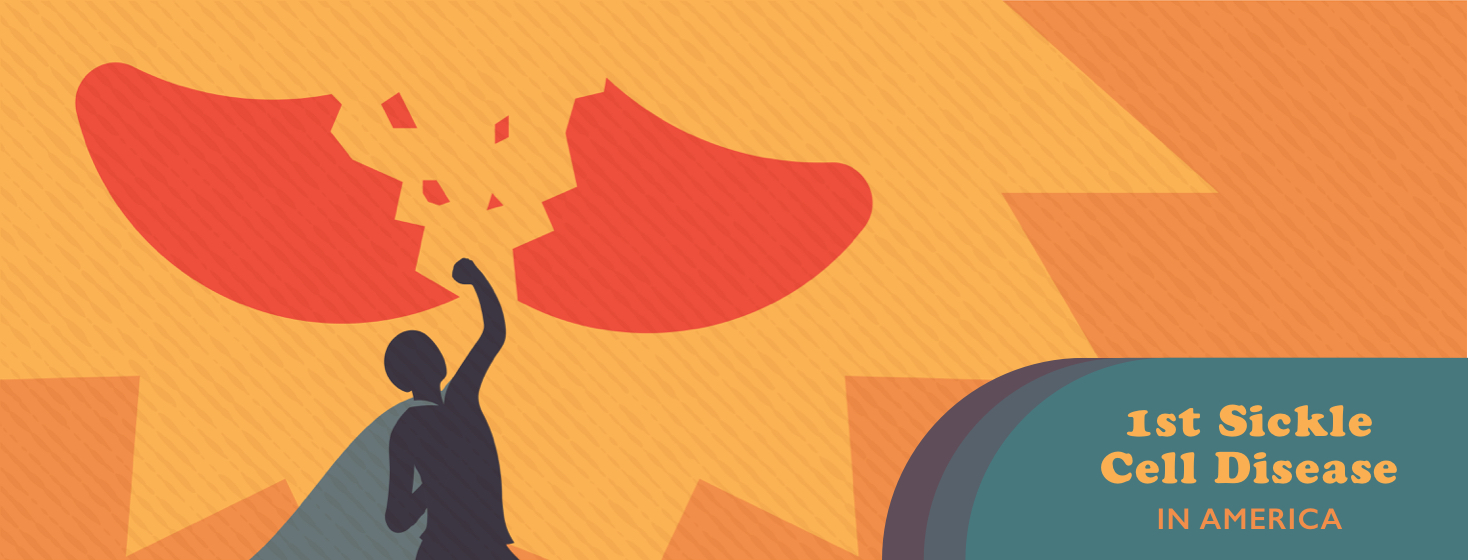
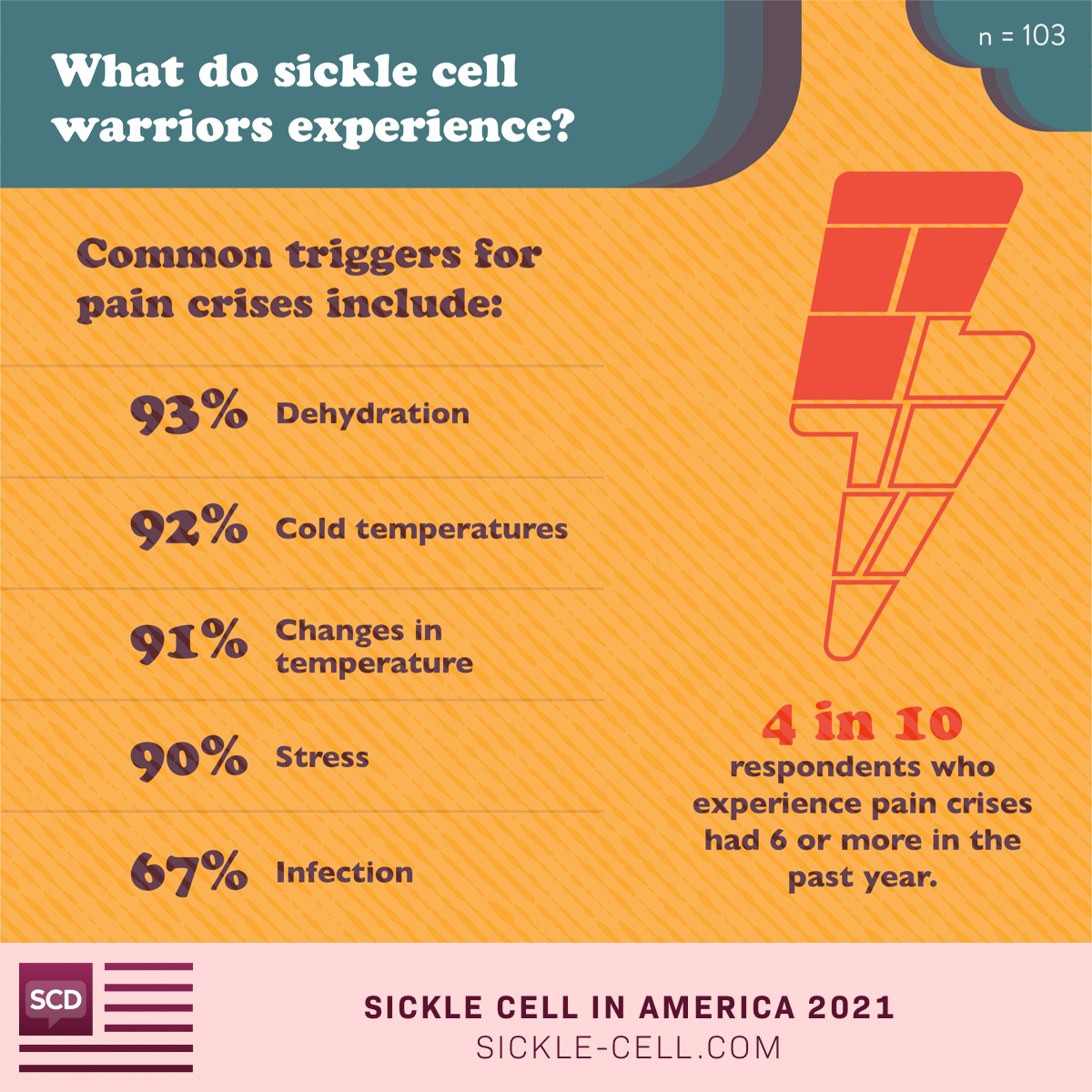
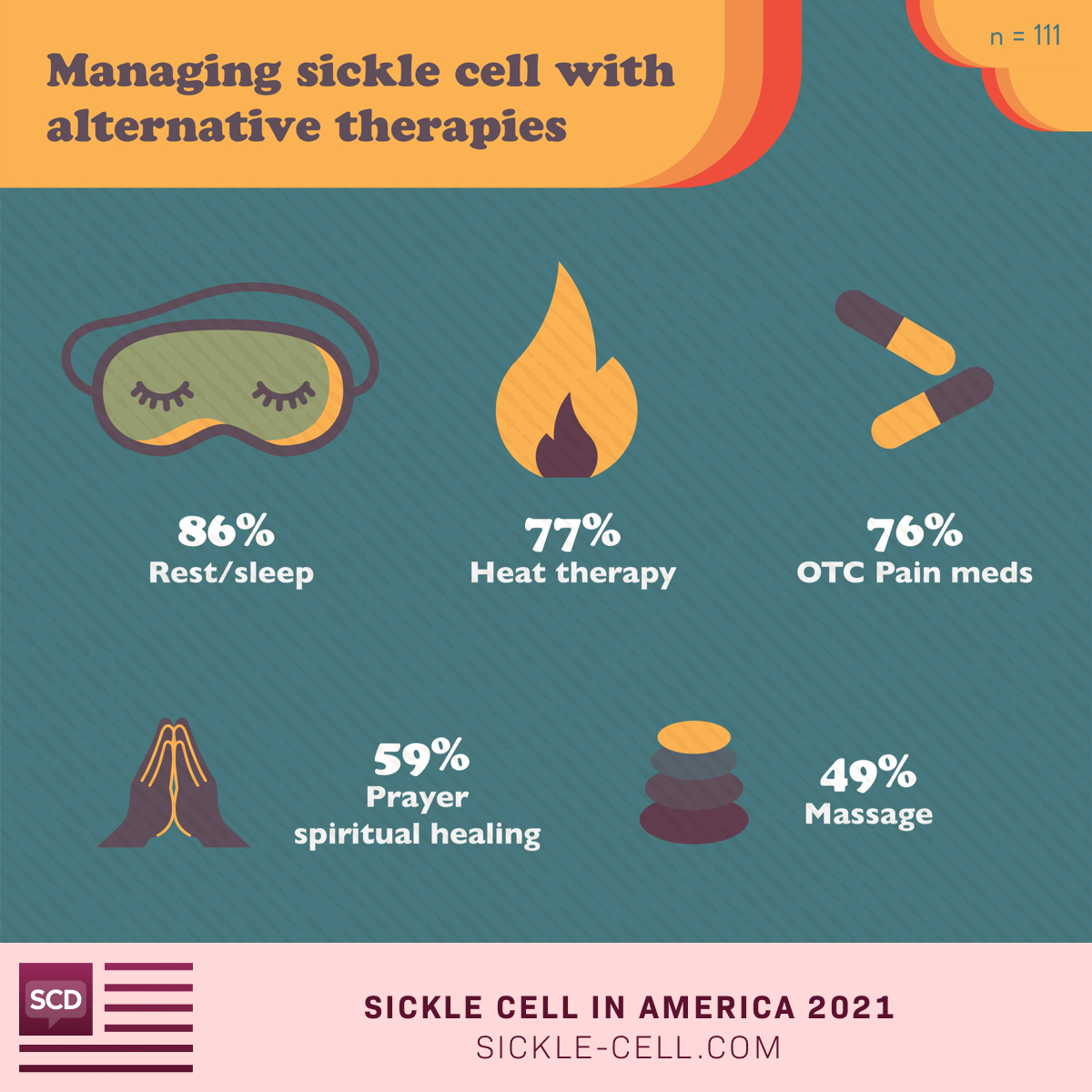
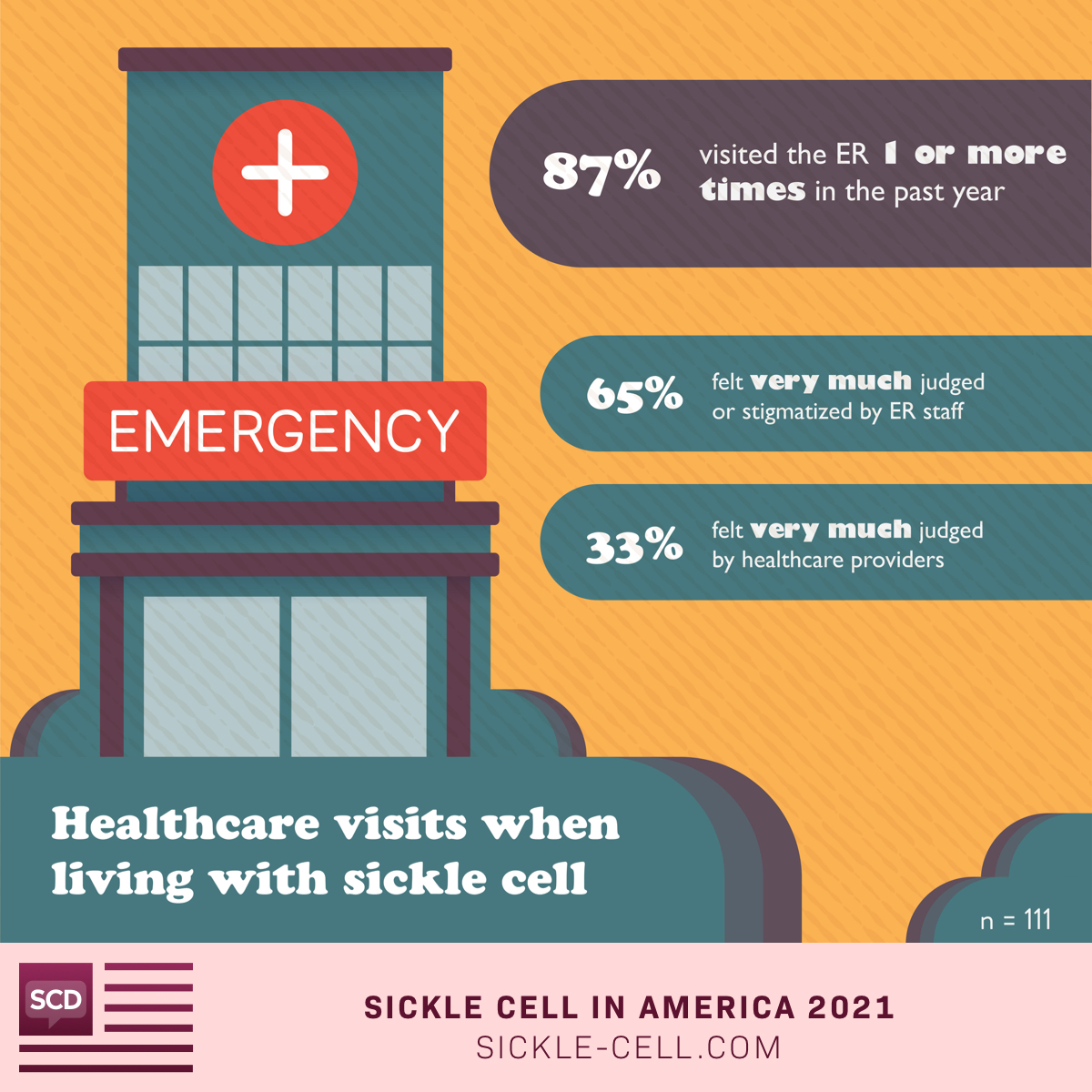
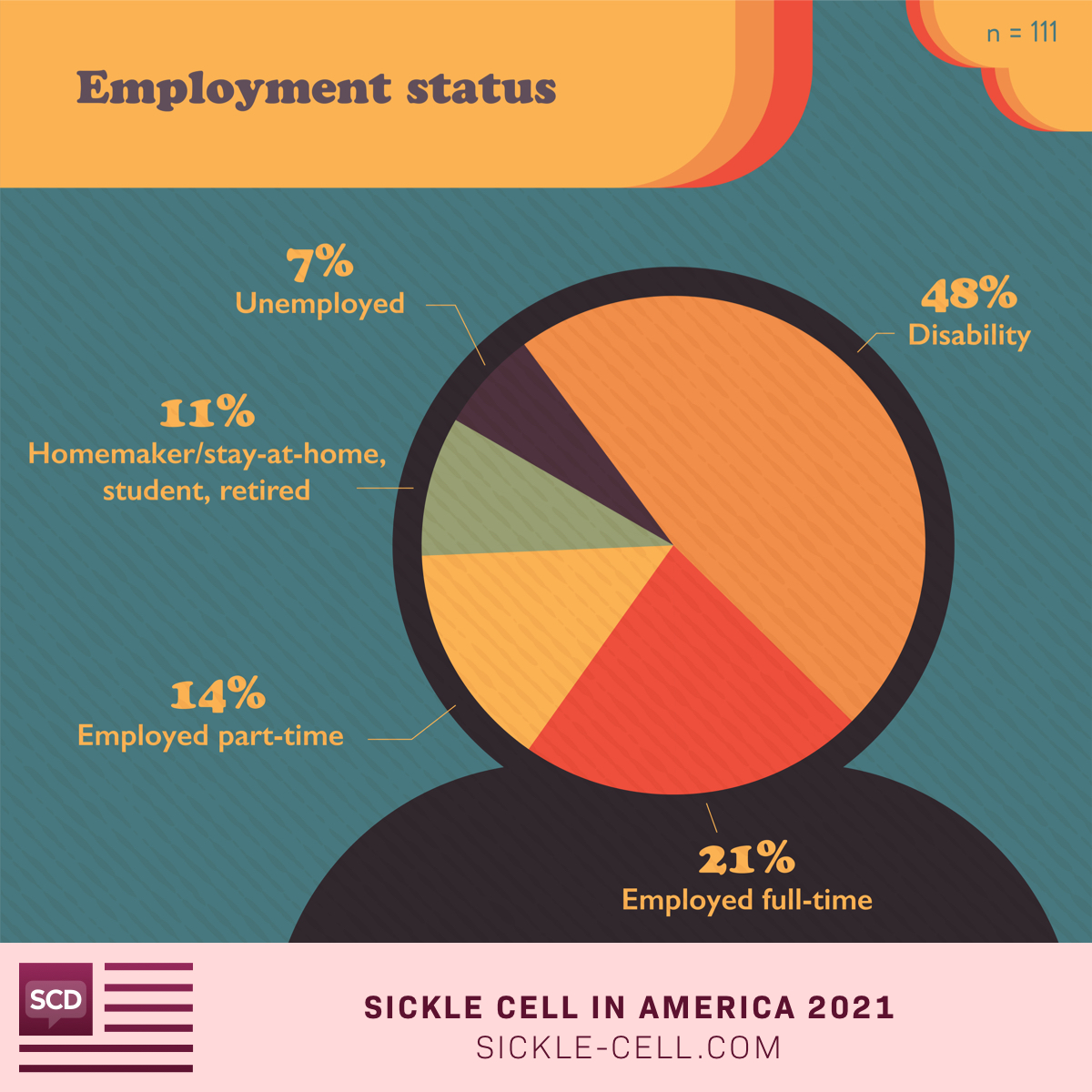
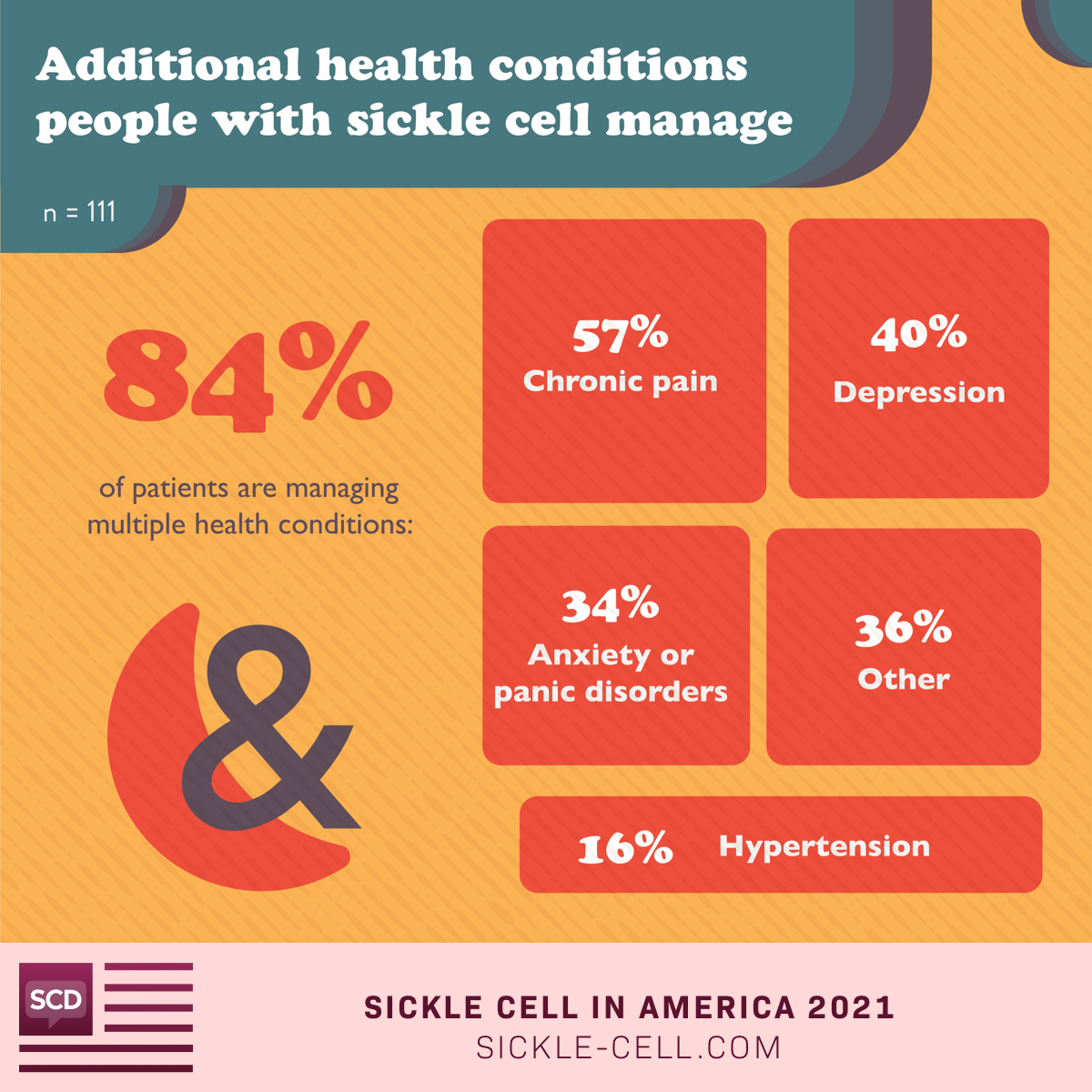
Join the conversation